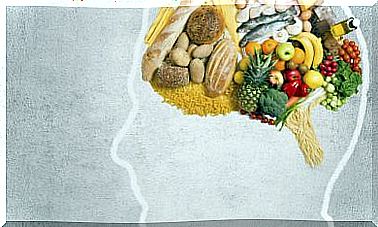The Day I Dropped My Complexes I Felt Free

Few sensations can be more cathartic, satisfying and liberating than letting go of our complexes. The expression of one’s being and that “I love myself as I am” act as authentic weapons of power, as caresses for our self-esteem and as strong shields against empty criticism and destructive comments.
Until not long ago the subject of complexes was its own distinctive territory of psychoanalytic jargon. A place where terms like “the Oedipus complex”, “the Bovary complex” or “Electra complex” gave rise to a kind of wild card or disaster box, where trying to classify any behavior or personality trait.
The word “complex” was introduced by Carl G. Jung and later popularized by Freudian psychoanalysis. Yet beneath all this thick grove of terminologies and attempts to categorize human behavior.
Among the most elementary objectives of psychology, being able to detect and understand the origin of those responses generated by the mind in the face of “supposed” defects or self-perceived deficiencies is almost like removing the nails that hold the door of a basement that has been closed for a long time. . We are talking about a private space where you can breathe an atmosphere that needs to be ventilated, oxygenated by new approaches and by the light of good self-esteem.
It must be said that it is not easy. The process to break or reformulate such self-destructive thought patterns takes time and a lot of therapeutic finesse. After all, as Freud himself once said, sometimes a real trauma can hide under a certain complex.
Let’s analyze this topic in detail.

The origin of the complexes: an experiential labyrinth
It is curious to delve into the etymology of those terms that we use so often. The word ” complex” derives from the Latin ” complectere”, and means to embrace, to embrace. Thus, we speak of a kind of bear hug, where they get caught between its fierce claws to form a single being, the same entity where predator and prey coexist.
Also, another fact that strikes us is that in any manual definition we are told that complexes feed on our own irrational thoughts. Phrases such as “I am like a whale for all these extra kilos”, “I am a coward, an ostrich that hides its head” or “I am worth less than a” 0 “to the left” are phrases that relentlessly feed back the feeling of inferiority.
Now, there are nuances that need to be clarified: these irrational thoughts often come from real, specific and painfully specific situations. Most of our complexes have their origin in childhood. A family that underestimates its children, that hurts them verbally through irony or contempt, generates deep trauma.

Later, these traumas take hold in adolescence. The lack of self-esteem and useful strategies to defend themselves and face, makes the young man be overwhelmed by that almost jungle world of some schools and institutes. Places where every lack, physical, behavioral or even “genius” is often objectified and cruelly pointed out.
Keys to change: yes to regain my self-esteem
There is no easy way. To regain our self-esteem, it is good to ascend a zigzagging and stony path, where only will and courage will allow us to reach a peak. A stop where, finally, to be able to shout “I love myself as I am, I am fine, I am a beautiful person, capable and worthy of building my happiness.”
- Complexes thrive on self-undervaluation. Sometimes this feeling of inferiority is inoculated by a family, by a complex childhood or adolescence. Other times, it can be innate, linked to a personality type.
- Knowing why we think as we think and what caused us to develop such destructive personal attribution is always helpful.
- Likewise, we must be very clear about one aspect: the person who does not love himself and is undervalued is undervalued. You have to change the speech, attitude, tone and treatment. To do this, the first thing we will do is stop comparing ourselves with others:.
- E xpress yourself. Find a channel where you feel good, where you can reaffirm yourself, discover yourself and love yourself. Dancing, sports, painting or writing are wonderful settings where you can channel your emotions.
- Now reflect on the scenarios and the people you are linked to. Do they respect you? Are you allowed to be yourself? Do they make you feel good? … Sometimes, “recycling” scenarios and people is a way to regain self-esteem and drop many complexes that others used to reinforce in us.
To conclude, always remember that we are not in this world to suffer or to lock up our wonderful vital essence in the prison of the complexes. We deserve to be free, happy and authentic, and above all to live our own reality, not the one that others mark us.
Images courtesy of Hilda, Emma Uber









